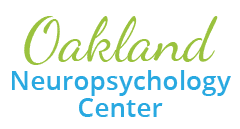
Autism Spectrum Disorder Testing
Note: The term Asperger Syndrome was previously used to diagnose individuals at the high-functioning end of the autism spectrum.
There’s a lot of talk about autistic spectrum disorders (ASD) these days – it’s in the news, in magazines, and seems to be on the rise with children. If parents are concerned about differences in their child’s speech, behavior, and social skills when compared to other children, ASD should be considered.
Autism is a spectrum disorder, which means that it affects children in different ways, with varying degrees of severity, and at different times in their development. It can include delays in several areas of functioning, including social functioning, communication skills, motor skills, and overall intellectual potential.
ASD can generally be identified between 18 months and 3 years of age. Some parents indicate that their child “doesn’t hear them” or that their child who once had a vocabulary now speaks little to no words at all. Other parents note that their child has an area of unusual ability, such as extensive vocabulary or reading skills, for their age level. This can be a perplexing situation for parents who want their children to fit in socially and grow intellectually.
Children with ASD frequently experience academic interference and executive function issues, including problems with:
- initiating, planning, and perspective taking
- reasoning and abstract thinking
- forming relationships with peers
- emotional challenges due to anxiety, depression, and low self-esteem
Autism impacts the entire family, so understanding the disorder through a neuropsychological assessment and appropriate intervention planning is a great first step.


